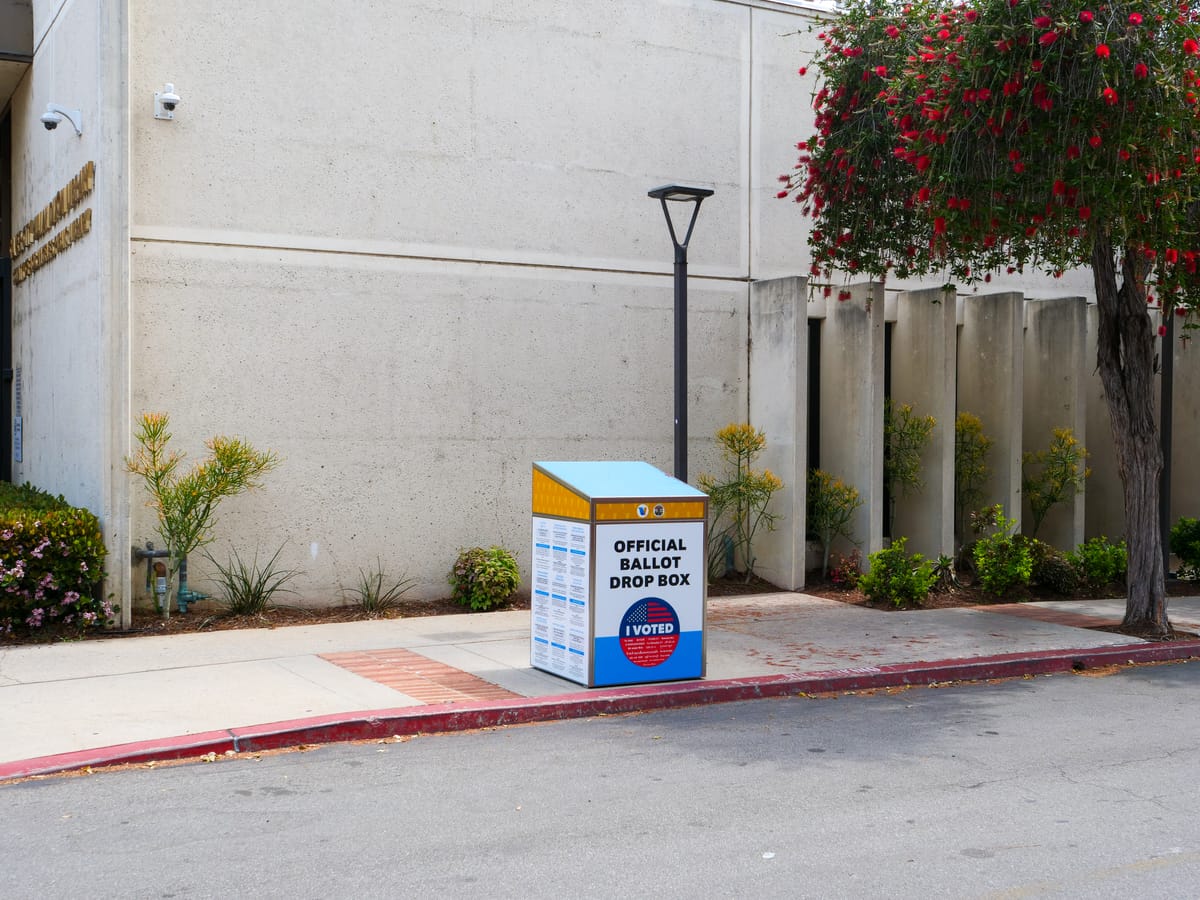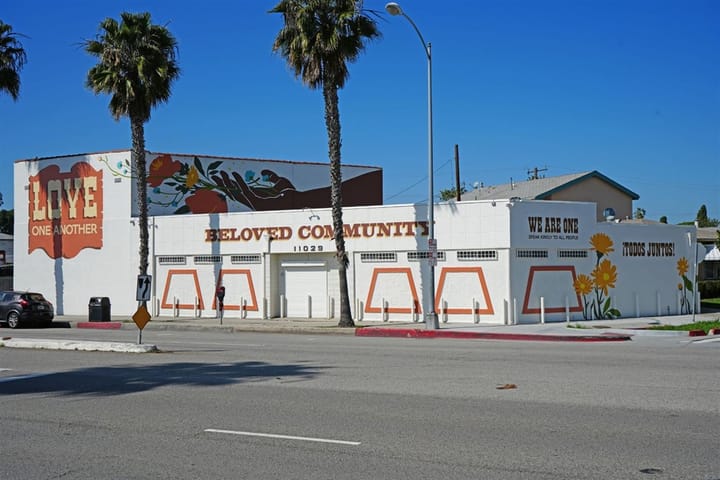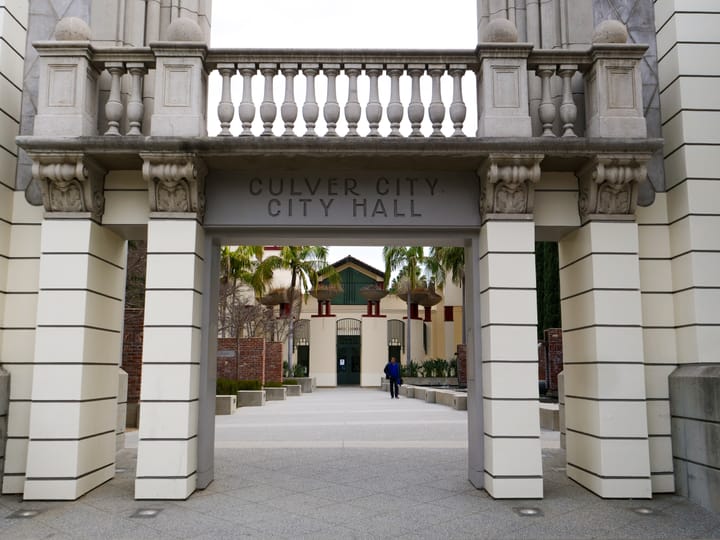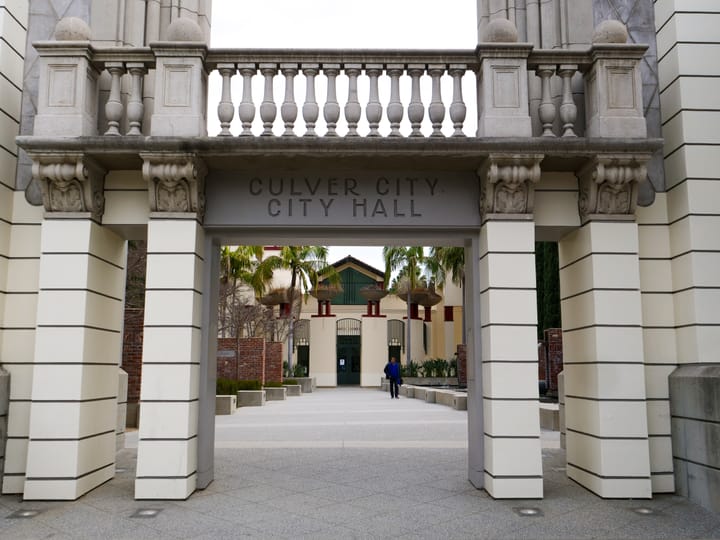Culver City to hold Special Election for Sales Tax Measure
An all-mail election will be conducted with the help of the county on Tuesday, August 26 for a 0.25% sales tax increase measure to correct the city's budget.

At its meeting Monday night, the Culver City Council unanimously approved holding a special election to present Culver City voters with a 0.25% sales tax increase measure to help address the city's structural deficit.
Unlike regular elections, this will be an all-mail election held on Tuesday, August 26, separate from the traditional election cycle. State law designates several times as viable days for special elections, with August being the next closest date.
Several of these off cycle elections were held in 2023, but none were held in August when an all-mail election is required by state law. The city of Los Angeles held special elections in April to replace disgraced Councilmember Nury Martinez, who resigned from her position as the 6th District councilmember in the wake of the 2022 L.A. City Council Scandal.
Beverly Hills also held a special election on May 23, 2023, to attempt to modify its zoning code for developing a luxury Cheval Blanc hotel in the city. Both measures on the ballot failed, leading the developer to announce the project's official end.
While these special elections were deemed necessary due to circumstances in the present day, Culver City's special election is looking toward the future. Due to state tax laws, the city and the county could potentially compete to assess an additional 0.25% sales tax on Culver City residents.
To avoid this, the city hopes that a city-wide tax measure passes before Los Angeles County or Metro can allocate that 0.25% with their own tax, funneling money away from Culver City. This would help tackle the projected fiscal deficit, exacerbated by a recent decision to include $16 million in the budget for the Jubilo Village affordable housing project.
Cost considerations were also part of the decision around the timing and format of the election, as the city will be contracting with Los Angeles County to run the election. Several options were presented during the initial consideration of this measure at the last City Council meeting last month, including a more traditional election held in November. However, running that election is estimated to cost $1.3 million, almost three times greater than the $540,000 allocated for the all-mail election in August.
The city also had to declare a fiscal emergency to place a tax measure outside of a general election. San Bernardino declared a fiscal emergency in 2012, leading to the city declaring a Chapter 9 Bankruptcy. San Bernardino eventually passed Measure S in 2020, which increased sales tax in the city by 0.75%, and the city closed the bankruptcy case in 2022 after a decade.
The city of Vallejo also had to declare a fiscal emergency in 2008, stemming from the Great Recession, and it was forced to declare bankruptcy that same year.
Bankruptcy and fiscal emergency declarations have consequences beyond what they enable cities to do financially. The fiscal emergency declaration allowed Vallejo to cut municipal costs, including massive pay cuts to public safety officers, which temporarily prevented Vallejo police from responding to property theft calls.
In a 2012 article published by LAist, a Vallejo car dealer reflected on the abandonment of the city's "Auto Row" as one of the consequences of declaring bankruptcy.
"That closed," then-car dealer Kenny Ross told LAist's Julie Small, pointing at a satellite photo on his iPad screen. "That closed. This Pontiac-GMAC store quit building. The fire station closed. And we were out here on an island."
Several Culver City council members were not eager to push a sales tax increase, but felt that this was the only option presented as a means to move forward. Councilmember Yasmine-Imani McMorrin said that she doesn't "feel great about it," noting that sales taxes constitute a smaller percentage of total income for higher-income families than those in lower-income brackets.
As he has in previous budget discussions, councilmember Bubba Fish emphasized that he had proposed a potential look at cuts within the city but didn't receive enough approval from his fellow councilmembers to move forward. However, Culver City Chief Financial Officer Lisa Soghor has stated publicly that departments have been told to examine their budgets for areas where cuts would have the least impact.
Fish voted yes, as a unanimous vote was required for the declaration of a fiscal emergency, but he argued it was not the best option for the city, only the best option that had received support from his fellow councilmembers.
"I will continue to advocate for a future where we don't lead from a place of fear," Fish said during his remarks Monday night.
Vice Mayor Freddy Puza pointed out the impact of a sales tax increase would extend beyond Culver City residents, with visitors doing business at Culver City retailers also contributing to the revenue stream. Sales tax is the largest source of General Fund revenue in Culver City, bringing in almost $25 million in the 2023/2024 Adopted Budget.
Puza also emphasized the importance of promoting the measure with framing to ensure residents understand the full context behind its appearance and timing. Several council members noted that the need for a budget correction was determined before the Jubilo Village allocation and is not the primary impetus for the sales tax measure.
"Our community is expected to grow," Puza said, "so if we keep the budget the same, it will have the same effect as cutting it."
Culver City voters can expect to see their ballots approximately 30 days before the election. Since no vote centers will be open for this election, voters will be required to either mail their ballot to the Los Angeles County Recorder and Registrar's office or drop it off at a designated ballot box, at City Hall, or at the United States Post Office.




Comments ()